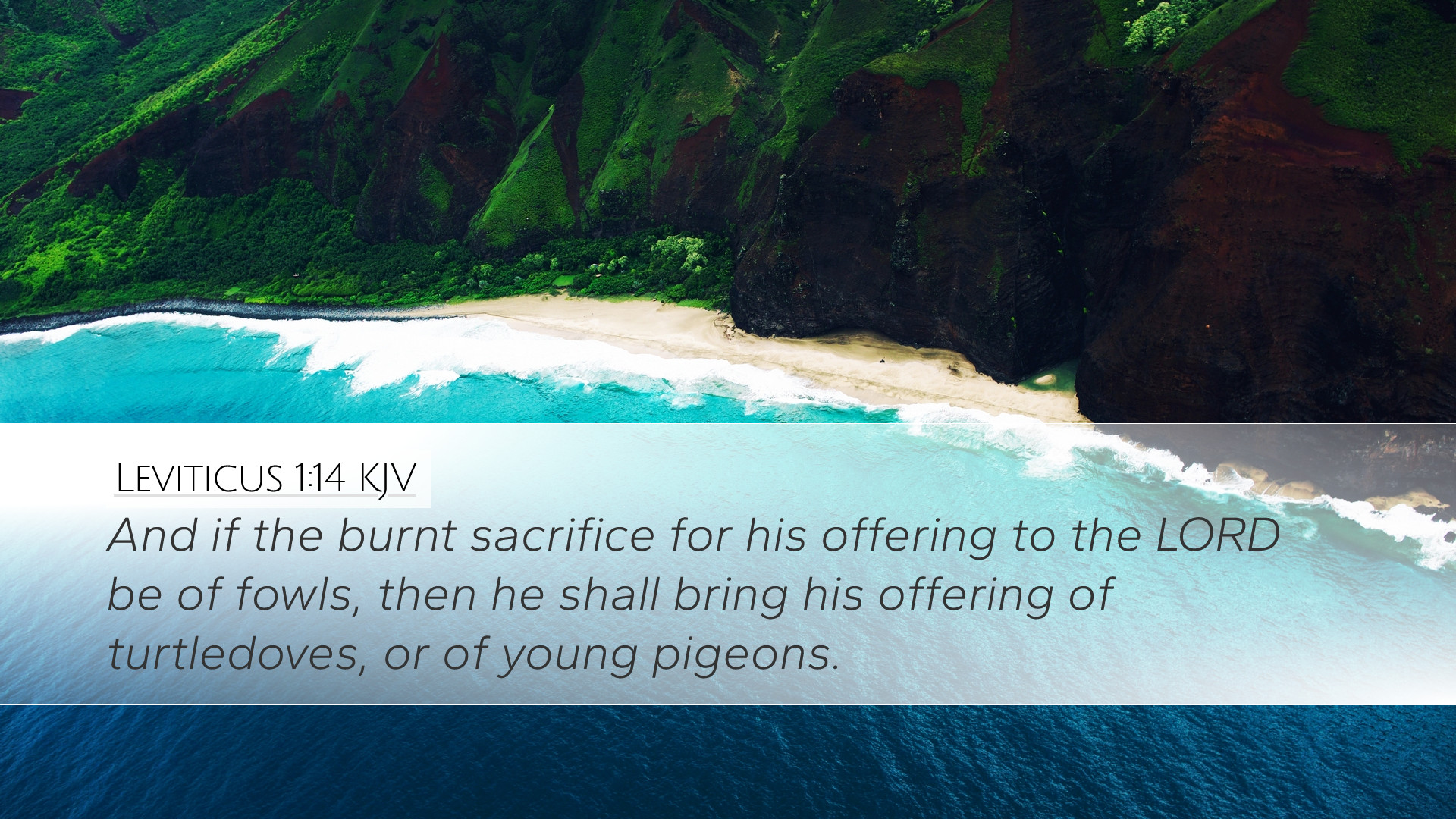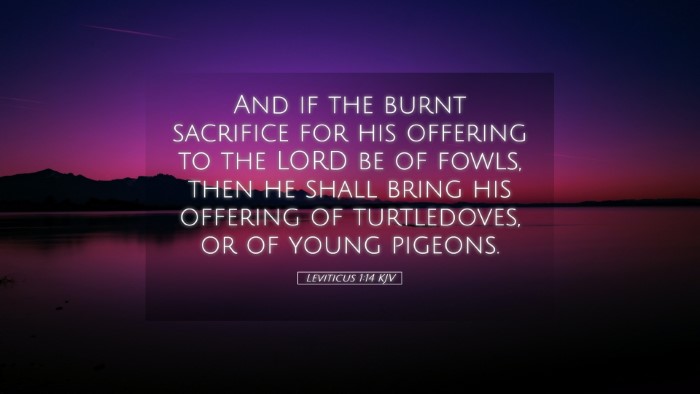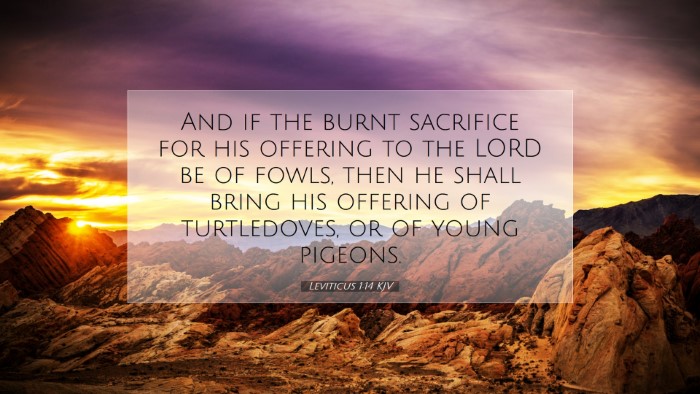Commentary on Leviticus 1:14
Verse Overview: In Leviticus 1:14, the scripture states, "And if the burnt sacrifice for his offering to the Lord is of birds, then he shall bring his offering of turtledoves, or of young pigeons." This passage discusses the specific kinds of sacrificial offerings that were acceptable under the Mosaic Law, emphasizing the accessibility of sacrifice for those of varying means.
1. Understanding Sacrificial Offerings
The context of Leviticus is essential for understanding the purpose of such sacrifices. These offerings were integral to Israelite worship, allowing the faithful to atone for their sins and express devotion to God. Henry notes:
"The burnt offerings were a significant aspect of worship, representing complete submission and dedication to God. It served as a reminder that all things belong to Him."
2. The Provision of Birds
Birds, specifically turtledoves and young pigeons, were permitted as offerings for those who could not afford larger animals such as lambs or cattle. This reflects God's understanding of social and economic status. Albert Barnes comments:
"The provision of turtledoves and pigeons highlights God's mercy; it ensures that every individual, regardless of wealth, has the opportunity to participate in worship and atonement."
2.1 Accessibility of Sacrifice
By allowing less expensive birds as acceptable offerings, God ensured that the poor were not excluded from worship. Clarke elaborates:
"God is no respecter of persons, and thus has provided a means of atonement for all. The acceptance of lesser offerings signifies that the intent and sincerity of the heart are what matter most in worship."
3. Symbolism of the Offerings
Each type of offering had symbolic significance. The burnt offering, in particular, symbolizes total consecration and the desire for reconciliation with God. Henry explains the significance:
"The offering of birds represents the believer's desire for spiritual purification, as the smoke would ascend towards heaven, symbolizing the worshiper's prayers and offerings reaching God."
3.1 Spiritual Interpretation
In a theological context, the sacrifice of birds can be seen as a prefiguration of Christ’s ultimate sacrifice. This aspect invites deeper reflection:
"Just as the bird is offered in humility, Christ was offered in meekness. The ease with which individuals could offer these sacrifices underscores God's intimate desire to be reconciled with humanity."
4. Lessons for Today
The passage prompts modern readers to reflect on the nature of their worship. Are our offerings—be they material contributions, time, or talents—truly reflective of our devotion to God? Barnes remarks:
"This verse speaks to the heart of Christian stewardship. Believers today should offer their best to God, whether it be from abundance or scarcity, as a reflection of their heart posture."
4.1 Call to Generosity
As ministers and students of the Word, it is vital to encourage a generous spirit, reminiscent of the sacrificial nature of the offerings described in Leviticus:
"The manner in which believers give—joyfully and sacrificially—mirrors the offerings prescribed in the Law. It is an act of worship when we give our time, resources, and energy to serve others."
Conclusion
Leviticus 1:14, while seemingly straightforward, offers profound insights into the character of God and the nature of worship. The acceptance of birds as offerings for those who may be economically disadvantaged reflects a God who desires relationship and worship from everyone:
"In understanding both the characteristics of the offerings and God's invitation to worship, we find a timeless message: God desires our hearts above all else, regardless of our circumstances."
Hence, this passage remains relevant to contemporary faith expressions, emphasizing that when we approach God, we must do so with sincerity and openness, presenting what we can in humility and love.


